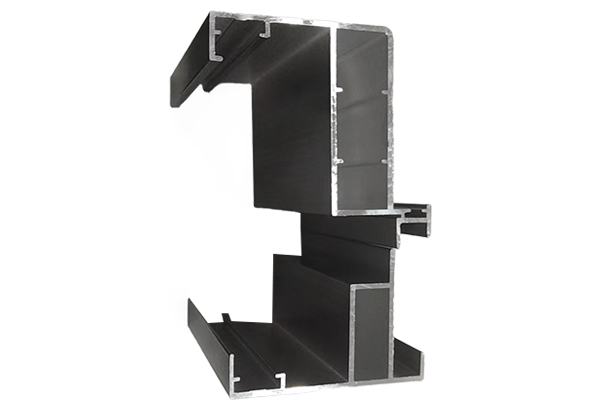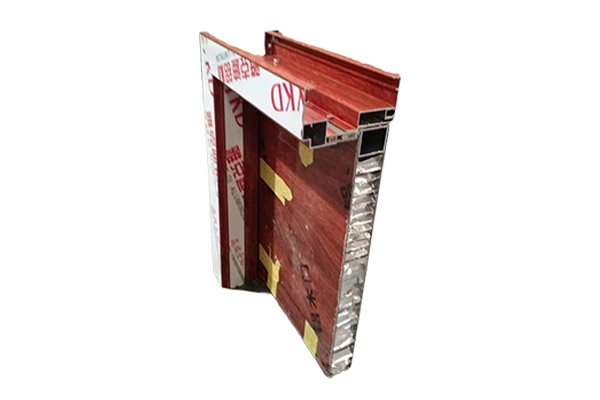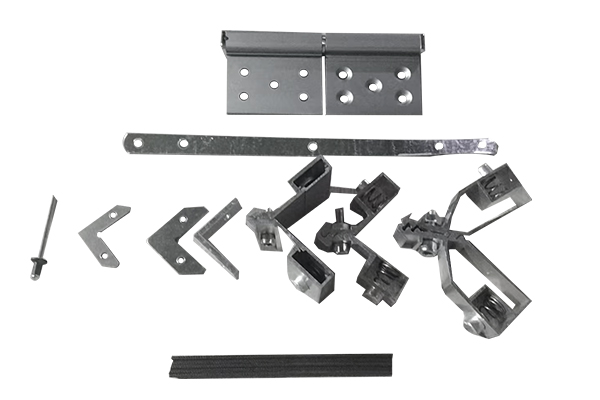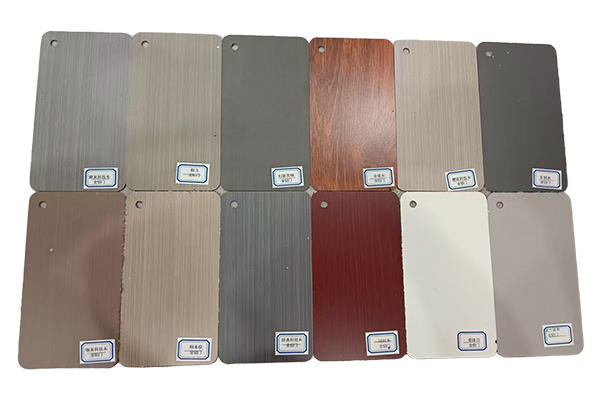How does the honeycomb door panel resist corrosion in outdoor or humid environments?
Release Time : 2025-02-19
The ability of the honeycomb door panel, especially the aluminum honeycomb door panel, to resist corrosion in outdoor or humid environments is mainly due to its material properties and surface treatment technology.
1. Material properties
High-quality aluminum alloy substrate: The aluminum honeycomb door panel uses high-quality aluminum alloy as the main material for the panel, bottom plate and honeycomb core layer. Aluminum alloy itself has excellent corrosion resistance and can effectively resist erosion in harsh environments such as moisture and salt spray.
Unique honeycomb structure: The honeycomb structure inside the aluminum honeycomb door panel not only increases its strength and rigidity, but also improves its corrosion resistance. This structure makes it difficult for water to accumulate inside the door panel, reducing the possibility of corrosion.
2. Surface treatment technology
Fluorocarbon spraying: The aluminum honeycomb door panel treated with fluorocarbon spraying has excellent corrosion resistance and weather resistance. Fluorocarbon coating can effectively resist erosion in harsh environments such as ultraviolet rays, acid rain, salt spray, etc., and extend the service life of the door panel.
Anodizing: Anodizing is an effective anti-corrosion treatment method. A dense oxide film will be formed on the surface of the aluminum honeycomb door panel treated by this method, which can significantly improve the corrosion resistance of the door panel.
Electrolytic nickel plating: Electrolytic nickel plating is also a common anti-corrosion treatment method. A uniform nickel layer will be formed on the surface of the aluminum honeycomb door panel treated by electrolytic nickel plating, which can effectively resist the erosion of the humid environment and improve the corrosion resistance of the door panel.
Spraying anti-corrosion paint: Spraying anti-corrosion paint is also an effective anti-corrosion treatment method. By spraying anti-corrosion paint, a protective layer can be formed on the surface of the aluminum honeycomb door panel, which can effectively isolate the contact between the humid environment and the surface of the door panel, thereby improving the corrosion resistance of the door panel.
3. Performance in practical applications
In humid and rainy southern buildings and humid and moldy kitchens, bathrooms and other places, aluminum honeycomb door panels have been widely used due to their excellent corrosion resistance. The humid environment of these places places high demands on the corrosion resistance of the door panels. The aluminum honeycomb door panel successfully resists the erosion of these harsh environments with its unique material properties and surface treatment technology, maintaining the stability and aesthetics of the door panels.
In summary, the ability of the honeycomb door panel to resist corrosion in outdoor or humid environments is mainly due to its high-quality aluminum alloy substrate, unique honeycomb structure and effective surface treatment technology. These characteristics enable the honeycomb door panel to maintain good performance and stability in these harsh environments.
1. Material properties
High-quality aluminum alloy substrate: The aluminum honeycomb door panel uses high-quality aluminum alloy as the main material for the panel, bottom plate and honeycomb core layer. Aluminum alloy itself has excellent corrosion resistance and can effectively resist erosion in harsh environments such as moisture and salt spray.
Unique honeycomb structure: The honeycomb structure inside the aluminum honeycomb door panel not only increases its strength and rigidity, but also improves its corrosion resistance. This structure makes it difficult for water to accumulate inside the door panel, reducing the possibility of corrosion.
2. Surface treatment technology
Fluorocarbon spraying: The aluminum honeycomb door panel treated with fluorocarbon spraying has excellent corrosion resistance and weather resistance. Fluorocarbon coating can effectively resist erosion in harsh environments such as ultraviolet rays, acid rain, salt spray, etc., and extend the service life of the door panel.
Anodizing: Anodizing is an effective anti-corrosion treatment method. A dense oxide film will be formed on the surface of the aluminum honeycomb door panel treated by this method, which can significantly improve the corrosion resistance of the door panel.
Electrolytic nickel plating: Electrolytic nickel plating is also a common anti-corrosion treatment method. A uniform nickel layer will be formed on the surface of the aluminum honeycomb door panel treated by electrolytic nickel plating, which can effectively resist the erosion of the humid environment and improve the corrosion resistance of the door panel.
Spraying anti-corrosion paint: Spraying anti-corrosion paint is also an effective anti-corrosion treatment method. By spraying anti-corrosion paint, a protective layer can be formed on the surface of the aluminum honeycomb door panel, which can effectively isolate the contact between the humid environment and the surface of the door panel, thereby improving the corrosion resistance of the door panel.
3. Performance in practical applications
In humid and rainy southern buildings and humid and moldy kitchens, bathrooms and other places, aluminum honeycomb door panels have been widely used due to their excellent corrosion resistance. The humid environment of these places places high demands on the corrosion resistance of the door panels. The aluminum honeycomb door panel successfully resists the erosion of these harsh environments with its unique material properties and surface treatment technology, maintaining the stability and aesthetics of the door panels.
In summary, the ability of the honeycomb door panel to resist corrosion in outdoor or humid environments is mainly due to its high-quality aluminum alloy substrate, unique honeycomb structure and effective surface treatment technology. These characteristics enable the honeycomb door panel to maintain good performance and stability in these harsh environments.







